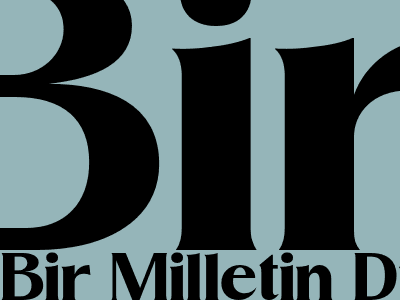
Bir Milletin Duygu Ve Düşünce Birliğini Oluşturan Gelenek Durumundaki Hayat Tarzı
The Role of Tradition as a Lifestyle in Shaping a Nation's Identity
Understanding the Significance of Tradition
Tradition plays a pivotal role in shaping the identity of a nation. It encompasses a collective set of customs, beliefs, and practices that have been passed down through generations, serving as a cultural foundation that binds a people together. Tradition influences various aspects of a nation's life, including its social structure, values, and even its language.
Traditions Preserve Cultural Heritage
One of the most significant roles of tradition is preserving a nation's cultural heritage. Traditions hold within them the accumulated knowledge, wisdom, and experiences of past generations. By adhering to traditional practices, a nation safeguards its unique cultural identity, ensuring that it is not lost or diluted over time.
Traditions Foster a Sense of Belonging
Traditions foster a deep sense of belonging among the members of a nation. When individuals participate in shared traditions, they experience a connection to their ancestors and a shared history. This sense of belonging strengthens the social fabric and promotes unity within the nation.
Traditions Provide Stability and Order
In times of change and uncertainty, traditions provide a sense of stability and order. They offer a framework for everyday life and help individuals navigate social interactions and expectations. By establishing clear guidelines and norms, traditions contribute to the smooth functioning of society.
The Impact of Tradition on National Identity
Traditions Shape Values and Beliefs
Traditions deeply influence the values and beliefs of a nation. The practices and rituals associated with tradition reinforce certain moral principles and ethical guidelines. By embodying these values, individuals internalize them, contributing to the formation of a shared national character.
Traditions Define Social Roles and Structures
Traditions often define social roles and structures within a nation. They establish clear expectations for individuals based on their age, gender, and social status. These roles and structures shape the way people interact with each other and contribute to the maintenance of social order.
Traditions Influence Language and Expression
Traditions can significantly impact a nation's language and forms of expression. Traditional stories, songs, and dances often incorporate unique linguistic features and symbolism. These elements reflect the nation's history, values, and experiences, contributing to the richness and diversity of its cultural expression.
The Challenges of Tradition in a Modernizing World
While tradition plays a vital role in preserving cultural identity and promoting stability, it can also face challenges in a rapidly modernizing world. Globalization, urbanization, and technological advancements can lead to the erosion of traditional practices and values.
Balancing Tradition and Modernity
Striking a balance between preserving tradition and embracing modernity is crucial for nations seeking to maintain their cultural identity while adapting to changing circumstances. It requires careful consideration of which traditions are essential to preserve and which can be modified or adapted to meet contemporary needs.
Addressing the Changing Values and Lifestyles
Modernization often brings about changes in values and lifestyles, which can challenge traditional norms and practices. Nations must foster open dialogue and encourage critical thinking to address these changes while ensuring that core cultural values are not compromised.
Utilizing Tradition as a Resource for Innovation
Rather than viewing tradition as a hindrance to progress, nations can harness its potential as a resource for innovation. By drawing inspiration from traditional knowledge and practices, they can develop creative solutions to contemporary challenges, fostering a dynamic and forward-looking society.
Conclusion
Tradition plays a multifaceted and indispensable role in shaping the identity of a nation. It preserves cultural heritage, fosters a sense of belonging, and provides stability and order. However, in a modernizing world, nations must navigate the challenges of balancing tradition with the demands of progress. By carefully considering which traditions to preserve and adapt, nations can harness the power of tradition to maintain their unique identity while embracing innovation and shaping a prosperous future.

Comments